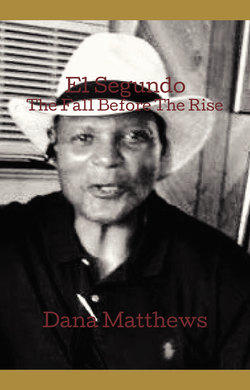Читать книгу El Segundo - James Newton - Страница 5
На сайте Литреса книга снята с продажи.
Chapter One
ОглавлениеThat Cotton Picking War
It was Dec. 8, 1941, President Roosevelt declared war on Japan, and we were scrapping cotton in the cotton field that day. The news was electrifying the whole world, though my family was poor, dirt farmers, share croppers; we were called by our society of those times, commonly called white trash, but we knew different with in our hearts as, we believed. We believed in the principles of America.
Poor and used by the plantation owners as servants, as mules that labored all year, the share cropper, cotton picker was rejected by most during that era. Even in little towns of Sumner, Mississippi, where later the murder Emmitt Till case was showcased in a world recognized mockery trial, things were a changing. Yes, there was institutionalized racism in the Deep South…. We acknowledged it and lived it, while the whole nation accepted it.
I grew up in a segregated society. All white schools and social settings. No contact with those “other people” was allowed outside of the proscribed “southern norms”. Strangely, it was poverty that breached the walls and crossed some of those lines for me. Poverty was God’s first blessing in disguise. Poverty was a common legacy.
There was a farming strip about 6 miles out from Sumner on an old gravel road. It was called Deep Slough. A strip of land that turned back north to an isolated place designated for the darkies and the white trash share croppers.
Deep Slough was nothing but a strip cotton fields that stretched from this desolate hideaway to Parchman Mississippi State Prison. For the record, Mississippi Prisons were and are always built in lower income communities. Greenwood, Mississippi was the cotton capital of the world. Cotton was King. Consequently, a cotton picker regardless of race as tied and inextricably linked financially to the “plantation”.
Despite laws and morals, a cotton picker chains and bonds were crafted by the plantation. Be you white or black. You were not able to leave; never able to be better yourself; never able to be somebody. If you wanted to pull yourself up by the Boot Straps, you’d have to find yourself a pair of boots first.
While we were entitled to less, we knew in our hearts, that things somehow someway were going to get better. We couldn’t see it, but Lord knows we felt it, and darn sure believed it.
Our secret was and still is, our faith that was forged by the immutable belief of a faithful Grandmother, and a prayerful Mother. Their faith galvanized our strength, nurtured and tended our seeds of hope that we would prevail.
Their faith reminded me of a Brush Arbor tree. A Brush Arbor tree seems like it was designed by God to cover and keep safe those under its huge arms. The tree shields you from the heat, snow rain and winds. Our tree protector continuously provided wood to keep our home so warm through an old pot butted stove that it would make the stove so hot, that it would seem to run winter away.
We had no other source of heat or no electric lights. Light came from our oil filled lamps which were dim but just bright enough to illuminate the dirt and saw grass floor of our share cropper shack and place of worship.
We worshipped differently from traditional White Southern segregation worship. Most God Fearing share croppers were called Holy Rollers. We found the term demeaning. The conventional religious community, which was largely controlled by big land and plantation owners, looked down on our expressions of faith. It was just another check and balance to make sure that we never escaped from the clutches of King Cotton.
The overseers who were backed by high paid lawyers and fueled by greed, stole our hard earned minimal wages. While poverty and the system was built to keep us from escape, the faith of praying people with hearts of grit would give us strength and help us persevere.
We would continue to preserve and over come through a secret that was revealed during that “Cotton Picking” War.
James Newton at 16 with brother Hamp at 15.
